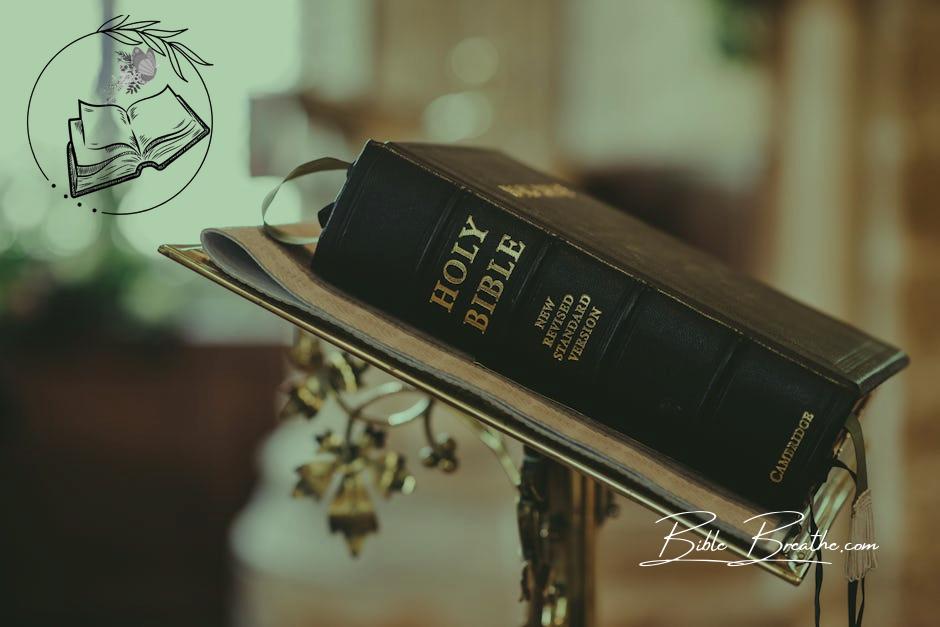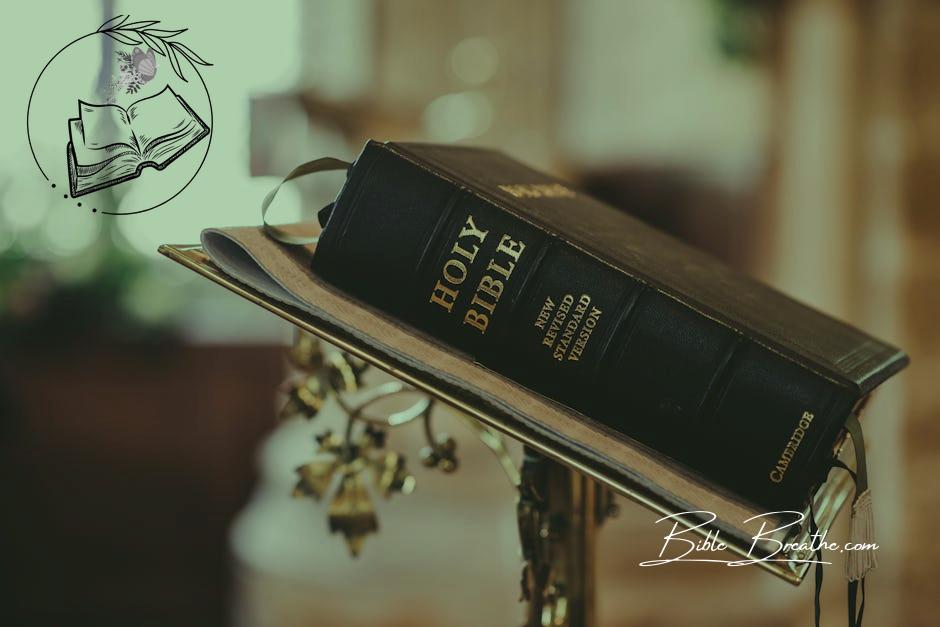Key Takeaways
- There are approximately 650 prayers in the Bible, depending on how one defines a “prayer”.
- The Bible contains many different types of prayers, including praise, thanksgiving, confession, petition, and intercession.
- The Psalms are a collection of 150 prayers and songs of praise to God, written by King David and other authors.
- The book of Luke records 12 specific prayers of Jesus, including the Lord’s Prayer in Luke 11:2-4.
- The apostle Paul’s letters contain many prayers and thanksgivings for the early Christian churches.
- The Bible also records prayers of Old Testament figures such as Abraham, Moses, Hannah, and Elijah, among others. Prayer in Christianity
Introduction
The Power of Prayer in the Bible
Prayer is the heartbeat of our faith. It’s how we communicate with God, and it’s a vital part of our relationship with Him.
The Bible is full of examples of people praying to God, and we can learn so much from their experiences.
But have you ever wondered, how many prayers are in the Bible?
Counting the Prayers in the Bible
It’s not an easy task to count every single prayer in the Bible, but we can look at some examples to get an idea.
From cries for help like David’s in Psalm 22 to prayers of thanksgiving like the one in Psalm 100, the Bible is full of prayers that show us how to talk to God.
Here are some examples:
- The Psalms of David: Many of the Psalms are prayers that David wrote to God, expressing his emotions and thoughts.
- Jesus’ prayers: We see Jesus praying in the Gospels, like in Matthew 26:39 when He prays in the Garden of Gethsemane.
- Prayers of the prophets: Prophets like Isaiah, Jeremiah, and Daniel all prayed to God, seeking guidance and wisdom.
Understanding Prayer in the Bible
Photo modified by BibleBreathe.com. Original photo by Pixabay on Pexels
Definition of Prayer in Biblical Context
So, what is prayer, anyway?
In the Bible, prayer is talking to God – it’s a conversation, not just a one-way monologue.
When we pray, we’re not just tossing up a wish list; we’re seeking to connect with our Creator, to pour out our hearts to Him.
“Call unto me, and I will answer thee, and shew thee great and mighty things, which thou knowest not.” (Jeremiah 33:3, KJV)
Importance of Prayer in the Lives of Believers
Why is prayer so important, anyway?
Well, for starters, prayer is a way to communicate with God – it’s how we express our gratitude, our fears, our hopes, and our doubts to Him.
Prayer is also a way to strengthen our faith – when we pray, we’re reminded of God’s power and love, and that can give us the courage to face whatever life throws our way.
Different Types of Prayers Found in the Bible
So, what kinds of prayers do we see in the Bible?
Here are a few examples:
- Prayers of thanksgiving: Like when David praised God for His deliverance in Psalm 30.
- Prayers of confession: Like when David confessed his sin to God in Psalm 51.
- Prayers of intercession: Like when Jesus prayed for His disciples in John 17.
| Type of Prayer | Example in the Bible |
|---|---|
| Prayer of thanksgiving | Psalm 30:1-5 |
| Prayer of confession | Psalm 51:1-19 |
Note: There are approximately 650 prayers mentioned in the Bible, so this is just a small sample!
Counting Prayers in the Bible
Methods Used to Count Prayers in the Bible
When it comes to counting prayers in the Bible, there are a few ways to approach it.
One way is to look at the prayers that are explicitly mentioned in the text, like the Lord’s Prayer in Matthew 6:9-13 or Hannah’s prayer in 1 Samuel 1:10-11.
Another way is to count the times when someone is said to have “cried out” or “called upon” God, like in Psalm 34:17 or Jonah 2:2.
The exact method used can affect the final count, so it’s essential to define what we mean by “prayer” in the Bible.
Challenges in Determining the Exact Number of Prayers
So, why is it so hard to give an exact number of prayers in the Bible?
Well, for one, the Bible doesn’t always explicitly label a passage as a “prayer.”
Sometimes, prayers are woven into the narrative, like in the Psalms, where the entire book is a collection of prayers and praises to God.
Other times, prayers might be implied, like when someone is said to have “inquired of the Lord” (1 Samuel 23:2).
The Bible is a complex book, and counting prayers can be a complex task.
Examples of Well-Known Prayers in the Bible
Despite the challenges, there are some prayers in the Bible that stand out.
Here are a few examples:
- The Lord’s Prayer (Matthew 6:9-13): Jesus’ model prayer for His disciples
- Hannah’s Prayer (1 Samuel 1:10-11): A heart-wrenching prayer for a child
- David’s Prayer of Repentance (Psalm 51): A prayer of confession and forgiveness after David’s sin with Bathsheba
- Solomon’s Prayer for Wisdom (1 Kings 3:5-15): A prayer for wisdom and understanding as the new king of Israel
These prayers, among many others, show us how people in the Bible communicated with God, and they can inspire and guide our own prayer lives today.
Prayer Practices in Different Books of the Bible
Photo modified by BibleBreathe.com. Original photo by Luis Quintero on Pexels
Analysis of Prayer Practices in Specific Books of the Bible
When we think about prayer in the Bible, we often think of David’s psalms or Jesus’ teachings on prayer. But what about other books of the Bible?
Let’s take a look at some examples:
- The book of Nehemiah: Nehemiah’s prayers are like little altars throughout the book, where he stops to seek God’s guidance and give thanks. We can learn from his example of prayer as a regular part of life.
- The book of Daniel: Daniel’s prayers are like a crescendo, building in intensity as he seeks God’s wisdom and purifies his heart. We can learn from his persistence and humility in prayer.
Comparison of Prayer Styles Across Different Biblical Figures
Have you ever wondered how different biblical figures prayed?
Let’s compare a few:
| Biblical Figure | Prayer Style |
|---|---|
| David | Emotive, expressive, and often written in poetry (Psalms) |
| Jesus | Intimate, personal, and often spoken in solitude (Matthew 14:23) |
The Role of Prayer in Shaping Biblical Narratives
Prayer isn’t just a sidebar in the Bible; it’s a main event.
Prayer shapes the narrative of the Bible, influencing the actions and decisions of its characters. Think about it: Moses’ prayers changed the course of Israel’s history, and Hannah’s prayers brought forth a prophet.
What if our prayers could have that kind of impact?
Significance of Prayer Frequency in the Bible
Discussion on the Frequency of Prayers in the Bible
Have you ever wondered how many prayers are in the Bible?
The answer might surprise you – there are over 650 recorded prayers in the Bible!
That’s a lot of praying, right?
But what’s even more amazing is that these prayers weren’t just random conversations with God.
They were intentional, heartfelt, and often repeated.
The Relationship Between Prayer Frequency and Spiritual Growth
So, what’s the deal with all these prayers?
Is it just a numbers game, or is there something more to it?
The truth is, prayer frequency is directly linked to spiritual growth.
The more we pray, the more we grow in our faith.
It’s like exercising a muscle – the more we use it, the stronger it gets.
Lessons on Consistency and Persistence in Prayer
What can we learn from the frequency of prayers in the Bible?
Here are a few key takeaways:
- Consistency is key: The Bible is full of examples of people who prayed regularly, even when they didn’t see immediate results.
- Persistence pays off: Many of these prayers were answered, but not always right away. We need to keep praying, even when it feels like God isn’t listening.
- Prayer is a habit: The more we pray, the more it becomes a natural part of our lives. And that’s when we start to see real growth.
“Call unto me, and I will answer thee, and shew thee great and mighty things, which thou knowest not.” (Jeremiah 33:3, KJV)
Theological Perspectives on Prayer Count in the Bible
Photo modified by BibleBreathe.com. Original photo by Pixabay on Pexels
Interpretations of the Number of Prayers in the Bible
Have you ever wondered how many prayers are in the Bible?
It’s a pretty interesting question, and the answer might surprise you.
There are around 650 prayers mentioned in the Bible, and that’s not even counting the many other references to prayer and worship throughout scripture.
But what does this abundance of prayers mean for us as believers?
Theological Implications of the Abundance of Prayers in Scripture
The sheer number of prayers in the Bible sends a powerful message: prayer is essential to the Christian life.
God wants to hear from us, and He wants us to communicate with Him regularly.
As John Wesley once said, “God does nothing but by prayer, and everything with it.”
Understanding the Spiritual Lessons Behind the Quantity of Prayers
So, what can we learn from the many prayers in the Bible?
Here are a few key takeaways:
- Prayer is a priority: The frequency of prayers in scripture shows us that prayer should be a top priority in our lives.
- God is always available: The many prayers in the Bible demonstrate that God is always available to listen and respond to our needs.
- Prayer is a catalyst for change: The prayers of biblical figures like David, Daniel, and Paul often preceded significant events and miracles. This shows us that prayer can be a powerful catalyst for change in our own lives.
“Call unto me, and I will answer thee, and shew thee great and mighty things, which thou knowest not.” (Jeremiah 33:3, KJV)
Historical Context of Prayer in the Bible
Cultural and Historical Influences on Prayer Practices in Biblical Times
Prayer has been an integral part of human culture for thousands of years.
In biblical times, prayer was shaped by the cultural and historical context of the people.
The ancient Israelites were surrounded by nations that worshipped multiple gods, and their prayer practices reflected this.
They would often pray to specific gods for specific needs, like fertility or protection.
But the God of the Bible was different – He was a God who desired a personal relationship with His people.
Evolution of Prayer Traditions in the Old and New Testaments
So, how did prayer traditions evolve in the Bible?
In the Old Testament, prayer was often formal and ritualistic, with specific instructions on how to pray.
Think of the Tabernacle and the Temple, where priests would offer sacrifices and prayers on behalf of the people.
But with the coming of Jesus Christ, prayer became more personal and intimate.
Jesus taught us to pray with simplicity and sincerity, as seen in the Lord’s Prayer (Matthew 6:9-13).
Impact of Prayer on the Development of Religious Practices
Prayer has had a profound impact on the development of religious practices throughout history.
In the early Christian church, prayer was a central part of their gatherings and worship.
The apostles would often pray for guidance, wisdom, and strength in their ministry.
And today, prayer remains a vital part of Christian worship and daily life.
“Call unto me, and I will answer thee, and shew thee great and mighty things, which thou knowest not.” (Jeremiah 33:3, KJV)
Practical Applications of Bible Prayers Today
Photo modified by BibleBreathe.com. Original photo by Markus Spiske on Pexels
Relevance of Biblical Prayers in Modern-Day Spiritual Practices
How many prayers are in the Bible? Well, there are over 650 prayers recorded in the Bible! That’s a lot of prayers, right? But here’s the thing: those prayers weren’t just random thoughts thrown up to God. They were intentional, heartfelt, and often desperate cries to the Almighty.
Think about it: the Bible is full of people just like us, struggling to make sense of life, facing uncertainty, and seeking guidance. And what did they do? They prayed! They poured their hearts out to God, and He listened.
How to Incorporate Biblical Prayer Principles into Personal Prayer Life
So, how can we apply these biblical prayer principles to our own prayer lives? Here are a few ideas:
- Be honest with God: The Bible is full of people who were brutally honest with God. They didn’t sugarcoat their emotions or pretend everything was okay when it wasn’t. We can do the same.
- Be specific: Instead of just praying vague prayers, try being specific. Ask God for exactly what you need, just like the biblical characters did.
- Be persistent: Don’t give up! The Bible is full of people who prayed repeatedly for the same thing, and God answered.
Benefits of Studying and Emulating Prayers from the Bible
So, what’s the benefit of studying and emulating these biblical prayers? Well, for one, it helps us develop a deeper understanding of God’s character. It also gives us a model for our own prayers, and reminds us that we’re not alone in our struggles.
As the famous theologian, Martin Luther, once said, “Prayer is not overcoming God’s reluctance, but laying hold of His willingness.” Isn’t that cool? God is willing to listen, to help, and to guide us. We just need to ask.
“Call unto me, and I will answer thee, and shew thee great and mighty things, which thou knowest not.” (Jeremiah 33:3, KJV)
Exploring the Diversity of Prayers in the Bible
Examination of Prayers of Thanksgiving, Supplication, Intercession, and More
When we think of prayer, we often think of just one or two types, but the Bible shows us that prayer is a diverse and vibrant expression of our relationship with God.
Let’s take a look at some of the different types of prayers in the Bible:
- Prayers of thanksgiving: Like when David praised God for delivering him from his enemies (Psalm 30:1-3).
- Prayers of supplication: Like when the Israelites cried out to God for deliverance from slavery in Egypt (Exodus 2:23-25).
- Prayers of intercession: Like when Moses interceded on behalf of the Israelites after they worshiped the golden calf (Exodus 32:11-14).
- Prayers of lament: Like when Jeremiah mourned the destruction of Jerusalem (Lamentations 1:1-6).
Diversity of Prayer Expressions in Different Biblical Contexts
The Bible shows us that prayer can take many forms and can be expressed in different ways, depending on the context.
For example, prayers in the Psalms are often poetic and expressive, while prayers in the Epistles are often more instructional and pastoral.
Lessons on the Various Forms and Purposes of Prayer in the Bible
So, what can we learn from the diversity of prayers in the Bible?
Here are a few key takeaways:
- Prayer is a natural response to our experiences: Whether we’re rejoicing or struggling, prayer is a natural way to respond to what’s happening in our lives.
- Prayer can take many forms: We don’t have to stick to one way of praying; we can experiment with different forms and expressions of prayer.
- Prayer is a way to connect with God: No matter what’s going on, prayer helps us connect with God and tap into His power and wisdom.
“Call unto me, and I will answer thee, and shew thee great and mighty things, which thou knowest not.” (Jeremiah 33:3, KJV)
Frequently Asked Questions About How Many Prayers Are In The Bible
What is the significance of prayer in the Bible?
In the Bible, prayer is a vital means of communicating with God, seeking guidance, and expressing gratitude. It’s a way to build a personal relationship with Him, and to find comfort, strength, and wisdom in times of need. Through prayer, believers can experience God’s presence, forgiveness, and provision.
How are prayers recorded in the Bible?
In the Bible, prayers are recorded in various forms, including direct quotes, narrative descriptions, and poetic expressions. Examples include the Psalms, which are poetic prayers, and the prayers of Jesus, such as the Lord’s Prayer in Matthew 6:9-13. These recorded prayers provide insight into the spiritual lives of biblical figures and offer guidance for modern prayer practices.
What are some examples of prayers in the Bible?
The Bible is filled with powerful prayers! Some notable examples include Hannah’s prayer for a child in 1 Samuel 1:10-11, David’s prayer of repentance in Psalm 51, and Jesus’ prayer in the Garden of Gethsemane in Matthew 26:36-46. These prayers showcase heartfelt communication with God.





